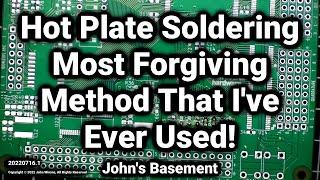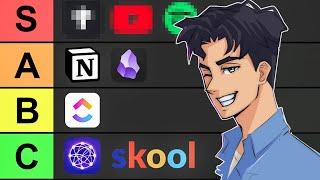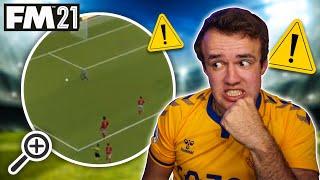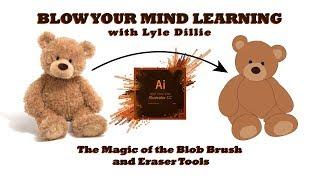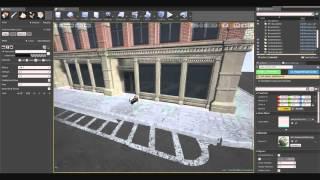
My First Attempt at Hot Plate Soldering
Комментарии:

For the hobbyist, this seems much more sensible than converting a toaster oven. I’d love to see how this works on the Z80 board micro-SD reader.
Ответить
I enjoyed watching your experiment, my take on smd soldering is that we should trust we can do it with good results. You also had fun doing it! I'd like to see a Z80-Retro! version using more smd parts, integrating more features, like maybe a DMA controller, or the programmer. If all the passives are smd, they can be factory assembled. I think a usb to rs232 chip would also be nice, enabling power and console over one cable.
Ответить
Yeah, hotplates work nicely, stencil is nice but not essential if you're happy to do a bit of clean up but they're even better with one. Which hotplate did you get?
Ответить
Another technique with the hot plate I found to be quite useful for single pcbs without solder paste and a proper stencil: Use one of your bigger irons to add a thin layer of leaded solder to each pad. The solder mask prevents the solder from spreading (as opposed to solder paste without stencil). Then apply lots of flux (just flux, no solder paste!) to the pads and populate the board. Best is to use the "sticky" flux. Put it on the hot place and wait for the magic to work :) You may see occasional tombstoning of some resistors or a few bridges, but most are fine the first time. Maybe a good idea to have tweezers at hand and nudge the parts who need some help during reflow, as you did.
Ответить
With leaded solder paste you should wear gloves to stop the small balls finding their way into the crevices of your fingers and nails. Accidental ingestion is much more of a concern when it's paste than a wire. T3 balls are large but T4 and above are just nasty for how well they will hide. Blue nitrile gloves work best for me and also act as a mediocre secondary barrier against accidental burns. Important that they fit firmly, as loose or too floppy fit will hinder your experience. Really good idea to keep all food away from where you've had solder paste.
Nice to see the separation of the old paste and its flux, and yet still a very 'forgiving' reflow. You're right, a smaller luer lock nozzle and a more 'fresh' homogenised paste would of resulted in a more consistent result.

I was also amazed when I first used my hot plate too, the solder does all the work for you which suits me just fine, well done !....cheers.
Ответить
The d-limonene is "food grade" because you can use it as a degreaser in the kitchen. Like for cleaning your stove/oven/grill/barbecue and all kinds of kitchenware. In pure form it can be used as a flavouring agent.
Ответить
old tooth brushes for cleaning flux after
Ответить
I had about the same giddy reaction after trying a little $15 "LED desoldering hotplate" from amazon for the first time on some 3"x4" boards with a stencil a couple of weeks ago. It worked fantastically on the little IC's and passives, but things with a good bit of thermal mass (10UH inductors, in my case) I ended up having to finish by hand, (though maybe dabbing on some more solder like in the video and/or using better hot plate would have fixed that...) -- but soldering on ~60 tiny parts in under 2 minutes was shockingly fun!
Ответить
Doesn't the heat bake the crap out of your components? Heat makes semiconductors sad.
Ответить
Wow. I might just try dipping the board in solder and then throwing random components at it to see if it works as well :P
Ответить
Funny I just watched the sd card soldering video and started watching hot plate videos because I figured that method would be better, which brought me right back to this channel :)
Ответить
Sir, as a viewer new to "Jon's Basement", I stand in awe of your incredible output to date. Just one point about your solder paste application method where you applied it to the board. Would it not be better to apply it only to the component leads before presenting them to the board? I suspect it would give you much more control over the final outcome. Thank you again for your output - it really is very much appreciated.
Ответить
Great video. And good demonstration how forgiving and "easy" SMD board assembly can be. I've spoken with people who think that SMD is just too hard and they stick with only doing hobby projects with thru-hole parts. They dont believe me when I tell them that it's easier and faster to do SMD assembly. Heck, with 0805 or 0603 parts, you can even hand-solder those if you needed to. But with stencils and hot air.. goes much faster.
I find the hardest part of SMD board assembly is.. being able to actually SEE the damn parts! Some sort of magnification goes a long way. I used one of those illuminated mangifier lamp things for a while, which was a big help. Eventually, I broke down and bought a stereo microscope and that makes it so much easier. The 3D perspective is really helpful.
Thanks for the video! Great fun, and surface tension is a powerful force at this scale..

Hahahaha you seem to be having fun this was how I felt when I first tried it…. I do get better results at least trying to follow the reflow curve
Ответить
I was in Sunnyvale when fry’s electronics first opened up…
Ответить
Thanks for the video. After having it for around a year now, what are your thoughts on using a hot plate for soldering?
Also, what temperature do you typically take your plate versus the solder melting point? Thanks!

First put solder on the pads with soldering iron, this way you will cover the pads evenly with solder and avoid balls. Then put flux and place the components, the hot plate will do the rest. Otherwise you will need a stencil.
Ответить
I enjoyed this ! More please
Ответить
drop one in the goo... then move it to clear pads.
Ответить
Thanks for the advice, I got a similar hotplate after watching this and it's a CHEAT code for SMD work. I can do more in 10 seconds with a hotplate than I could in 30 minutes with a fine-tip soldering iron, to say nothing of how it alleviates basically all of the frustration. Even manually applying solder to the pads with an iron and placing components on top for melting is not too hard. And the joint quality goes from embarrassing to near perfect, it's such a big improvement that it makes you laugh!
Ответить
Recently had to build a board that was primarily smd. I used chipquik and getting the temperature was the tricky part, ended up needing around 235 but once I did…I was convinced that I made the right choice. I didn’t even use a stencil but the sockets worked perfectly and just needed to clean up the ics
Ответить
well it turned out very good
Ответить
Man! Unexpected funny 😀
Great Video
